 Our spokesperson, Maryam Namazie, was invited by Dabran Platform to speak at the Founding Congress of Enlightenment Feminism in Sulaymaniyah, Kurdistan (photos below). She spoke about Islam and Islamism as the greatest stumbling blocks for women’s emancipation and how Islamists target women and girls first – whether in Tehran, Peshawar or Manchester. Here’s her speech:
Our spokesperson, Maryam Namazie, was invited by Dabran Platform to speak at the Founding Congress of Enlightenment Feminism in Sulaymaniyah, Kurdistan (photos below). She spoke about Islam and Islamism as the greatest stumbling blocks for women’s emancipation and how Islamists target women and girls first – whether in Tehran, Peshawar or Manchester. Here’s her speech:
Islam and Islamism – the greatest stumbling blocks in the way of women’s emancipation*
(Suffragette Elizabeth Cady Stanton said: “The Bible and the Church have been the greatest stumbling blocks in the way of women’s emancipation.”)
Maryam Namazie
The First Enlightenment Feminism Congress, Sulaymaniyah
It’s such an honour to be here at the founding Congress of Enlightenment Feminism. Thank you for giving me the opportunity to speak about how Islam and Islamism are the greatest obstacles to women’s emancipation.
 The first time I realised Islam and the Islamists hate women was when I was around 12. Prior to that, my ‘Muslim’ family and friends were secular and practiced religion in various ways – some fasting, some drinking alcohol whilst others not, mostly women not wearing the veil and never any segregation at our social gatherings, schools, workplaces… Then it all changed.
The first time I realised Islam and the Islamists hate women was when I was around 12. Prior to that, my ‘Muslim’ family and friends were secular and practiced religion in various ways – some fasting, some drinking alcohol whilst others not, mostly women not wearing the veil and never any segregation at our social gatherings, schools, workplaces… Then it all changed.
The Hezbollah came to my school, which was mixed, in order to segregate the boys from the girls – though we ran circles around them. It was the beginnings of the Islamic movement’s suppression of a left-leaning revolution against the Shah’s dictatorship and beginnings of the notorious ‘morality police’.
Even though at the time we were children – though not to them – they saw us girls as the source of fitnah in society.
As you know, In one Hadith Mohammed, Islam’s prophet says: ‘I have left behind no fitnah more harmful to men, than women'(Al-Bukhari, Muslim).
Of course hatred of women is a recurring theme in all major religions. There is a Jewish prayer recited by men that says: ‘Blessed are you, Lord, our God, ruler the universe who has not created me a woman’. In the Bible: ‘A woman should learn in quietness and full submission. I do not permit a woman to teach or to have authority over a man; she must be quiet.’ (1 Timothy 2:11-14) This is also evident in Hinduism, Buddhism…
As US Suffragette Elizabeth Stanton said: ‘Every form of religion, which has breathed upon this earth has degraded women’.
Women are the first targets of religion in power and it’s always a sign of worse to come, hence the saying: ‘the freedom of society is measured by the freedom of women’.
For those who only see the surface, there is an apparent contradiction that is often not understood.
On the one hand, Islamic law and states are the beginning of the end of women’s rights, freethought and democratic politics.
A pillar of Islamist rule is the attempt to erase women from the public space.
Artist Phillip Toledano has done a series on Iranian Censorship of women calling it “Portraits of Absence”. It shows how black markers erase women’s bodies from packaging, magazines, adverts.
The chador or the burqa and niqab are really the fabric version of this black marker. Erased, devoid of humanity, Disappeared.
chador or the burqa and niqab are really the fabric version of this black marker. Erased, devoid of humanity, Disappeared.
Like the disappeared of Argentina, or the thousands buried in mass graves in Khavaran during the massacre of political prisoners by the Iranian regime in the 1980s.
A perfect world for the Islamists is a world devoid of women in the public space. Bound, gagged, not seen or heard.
As Egyptian writer Mona Eltahawy says: ‘All religions are obsessed with [a woman’s] vagina’ and women are ‘traumatised into feminism’.
So on the one hand, Islamists want to erase women from the public space; on the other hand, women are everywhere – making sure they are seen and heard:
• This Enlightenment Feminist Congress is a perfect example.
• Or nude protest, which is the opposite of the commodification/objectification of women and an important form of resistance given Islam’s hatred of women’s bodies.
• O r the unveiling movement in Iran even though veiling is compulsory and punishable with up to two months in prison and fines. There is an app called Gershad to warn you of the locations of the morality police in Iran.
r the unveiling movement in Iran even though veiling is compulsory and punishable with up to two months in prison and fines. There is an app called Gershad to warn you of the locations of the morality police in Iran.
• Discarded veils are strewn on route by women who have fled Daesh-held territory.
 • And the burst of colours underneath the black shrouds being removed once women have reached liberated areas have become iconic. As have images of Kurdish fighters breaking Daesh signs telling women to wear a mobile prison.
• And the burst of colours underneath the black shrouds being removed once women have reached liberated areas have become iconic. As have images of Kurdish fighters breaking Daesh signs telling women to wear a mobile prison.
This female presence is palpable in all areas, including against gender segregation – for example in the demand to end segregation in stadiums – to abolishing Sharia family laws – such as in Rojava and Algeria.
The extent of control of women and their bodies is a measure of the power and influence of the Islamists just as the extent of women’s autonomy is a measure of the resistance against Islam, Islamism, and religious ‘morality’.
 The protests in Afghanistan against the killings of Farkhunda and Rokhshana are another perfect example with banners reading: ‘We must get rid of the filthy hands of the merchants of religion from our country so that we are not daily witness to the murders of Farkhundas and Rokhshanas’.
The protests in Afghanistan against the killings of Farkhunda and Rokhshana are another perfect example with banners reading: ‘We must get rid of the filthy hands of the merchants of religion from our country so that we are not daily witness to the murders of Farkhundas and Rokhshanas’.
Those only looking at the surface, see women’s active presence and resistance and wrongly credit Islam and Islamism.
In Iran, for example, they credit the ‘reformist’ faction of the Iranian regime.
They will also claim that women’s condition in Iran is better than women in Saudi Arabia as if it is thanks to the regime and Sharia law!
To me, it’s like crediting apartheid in South Africa for the black liberation movement or segregation in the US for the civil rights movement.
Have you noticed also how when it comes to women’s rights, it’s always compared to the lowest common denominator – never the highest? Why compare the status of women in Iran with Saudi Arabia; why not with Iceland?
This absurdity is only possible today because of identity politics and cultural relativism, which no longer acknowledges citizens and human beings but homogenised religious identities that unsurprisingly coincide with the impositions of Islamists and the ruling class.
This is why everything from gender segregation to the veil and Sharia are sanitised and legitimised at the expense of women’s rights.
And criticism deemed ‘Islamophobic’ – a political term used to scaremonger people into silence.
Or we are accused of ‘hurting public sentiment’ as if ‘the public’ is one mass and does not comprise of individuals with as many sentiments as there are people.
Only in a world where identity politics and cultural relativism reign supreme can the likes of Islamic feminism be given any credence.
But in my opinion Islam can never be feminist.
Religion can never emancipate women.
The late Iranian worker-communist Mansoor Hekmat said in an interview entitled ‘Islam is part of the lumpenism in society‘:
‘…no theology is liberating. Theology is the antithesis of liberation. It signifies keeping people ignorant, obstructing their independent thought and consigning them to an unknown creator and world. Liberation theology is nonsense. It is like saying liberation fascism; it is a contradiction in terms. Theology cannot be liberating, regardless of whether it is the Christian, Buddhist or Islamic version. For 19th century intellectuals, liberation before anything else meant liberation from religion and the fetters of imposed thought. Now, theology has become liberating?’
The US Suffragette Elizabeth Cady Stanton once said: ‘The Bible and the Church have been the greatest stumbling blocks in the way of women’s emancipation’.
Today, we can clearly say: Islam and Islamism are the greatest stumbling blocks in the way of women’s emancipation.
In fact any positive change in women’s condition, is not thanks to Islamic laws, states or Islam but despite it. It’s in fact thanks to women’s resistance against Islam and Islamism.
Of course that is not to say that believing women, Muslim women, cannot be feminists. Of course they can – just as men can be feminists and women misogynists – but one can only be feminist if women’s emancipation trumps religion. Whilst people – even believers – can be feminists, religion cannot. Religion is fundamentally patriarchal and anti-woman.
It aims to police women’s behaviour and sexuality and defend male and by extension community and national ‘honour’. In identity-based ‘politics … women are seen not as individuals with rights but as bearers of their community’s honour, to be protected or raped, depending who they are‘. Daesh’s Yazidi sex slaves are the most heinous case in point.
‘Islamic feminists’ like Shirin Ebadi will say that women have full rights under Islam and if they don’t it is ‘not Islam at fault but patriarchal culture that uses interpretation to justify whatever it wants’.
Yet the Quran and Hadith are overflowing with anti-women rules and regulations. Stoning to death for adultery, for example, is in a Hadith, while wife beating is in the Quran.
Islamic feminists will say the mistreatment of women is because of ‘bad’ interpretations. The problem with ‘good’ versus ‘bad’ interpretations is that yours is just one of many. Even if you have a ‘good’ interpretation, it is the Islamists who decide. They run the state; they make the laws. But more importantly, are there ‘good’ interpretations that are good enough for 21st century women?
If you follow the ‘good’ interpretations, you will soon realise the absurdity of this line of defence.
Take Sura al-Nisa (the women), [the fourth chapter] in the Quran 4:34, where it says: ‘As to those women on whose part ye fear disloyalty and ill-conduct, admonish them (first), (next), refuse to share their beds, (and last) beat them (lightly) . . . ‘
‘Islamic feminists’ will say that men have been made to wait, are not obliged to beat their wives, and when they do, they must not leave marks and beat their wives with thin sticks…
These are the justifications of those who are more concerned with defending Islam, than defending women’s rights.
From a women’s rights perspective, no woman should be beaten – ‘disobedient’ or not. Full stop. End of story.
If you want women’s liberation, you cannot leave women’s rights and lives at the mercy of religious rules and interpretations.
You have to choose – do you side with women’s rights or religion – you cannot defend both as they are antithetical to each other.
The fight for women’s liberation is a fight against Islam and Islamism.
Also, it is a fight for secularism – the complete separation of religion from the state. Secularism is a precondition for women’s emancipation. Secularism is a women’s issue.
Rather than excuse and justify ‘good’ religious interpretations and ‘moderate’ or ‘reformist’ Islamists, it would serve our societies better to defend citizenship rights irrespective of beliefs. It would serve our societies better to insist on secularism and women’s equality – not western, not eastern but universal.
Long live women’s freedom.
Thank you.
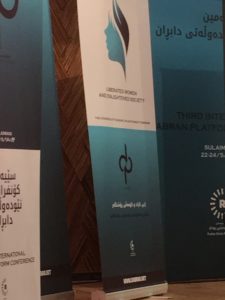
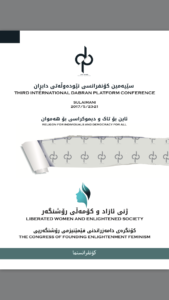
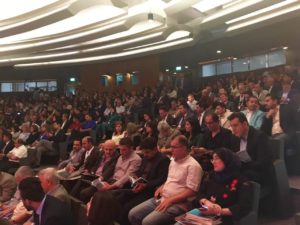
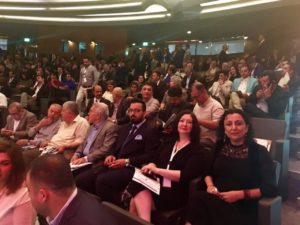
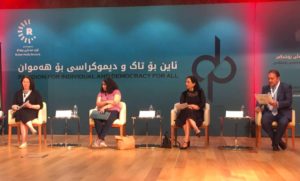
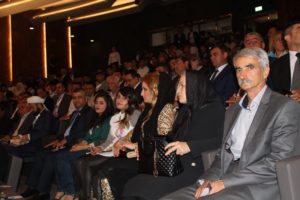
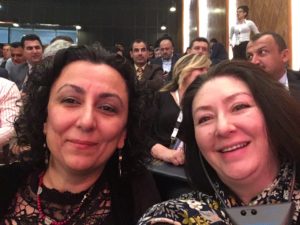
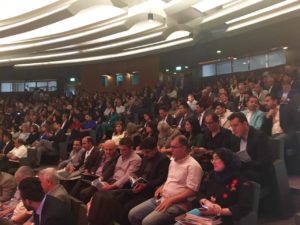

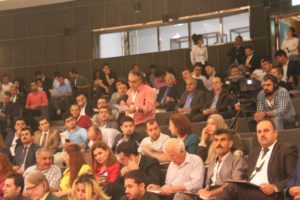
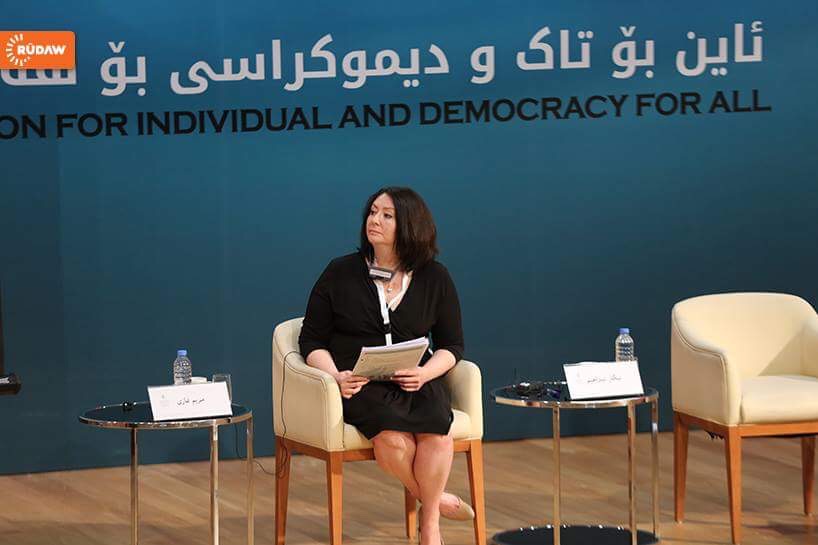
Leave a Reply